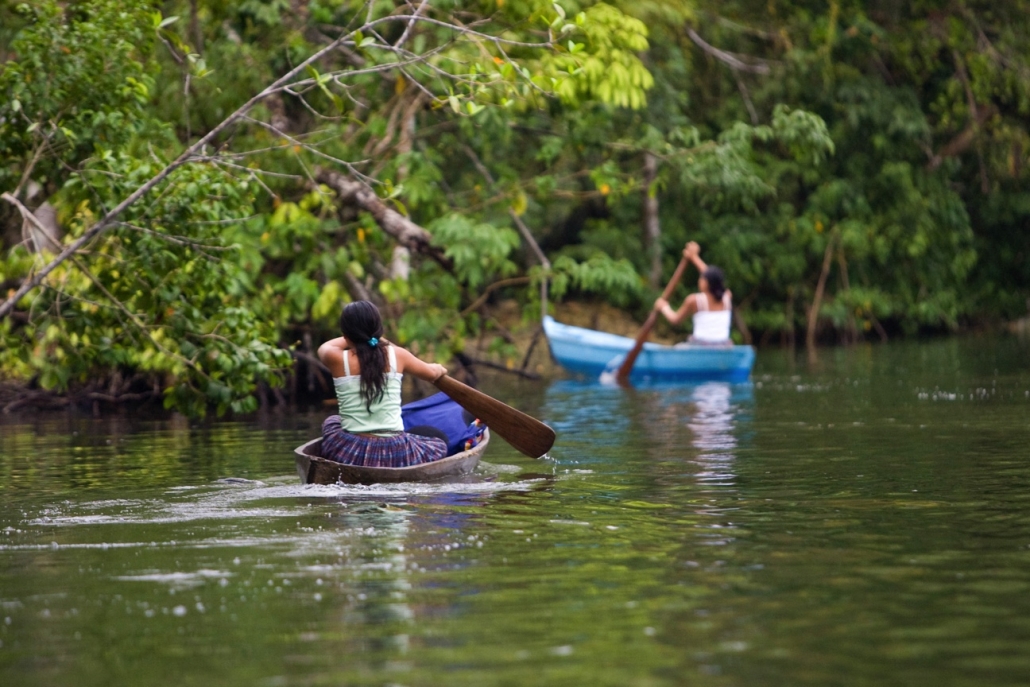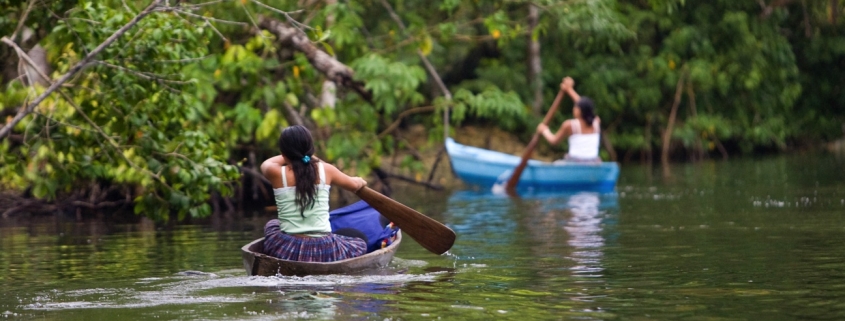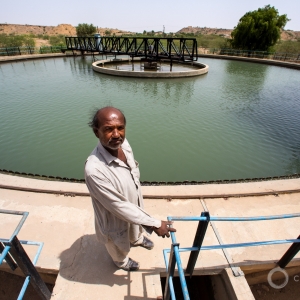HotSpots H2O: ‘Global Indigenous Agenda’ Calls for Water, Land, and Resource Governance at 2021 IUCN World Congress

Photo © Ak’ Tenamit / IUCN
- Indigenous delegates appeared for the first time as their own constituency at the International Union for Conservation of Nature’s World Conservation Congress, after negotiating for this representation at the previous Congress, in 2016.
- Guiding the summit’s discussions was the newly released “Global Indigenous Agenda for the Governance of Indigenous Lands, Territories, Waters, Coastal Seas and Natural Resources,” authored by the IUCN Indigenous partner organizations.
- The pervading hope is that this summit is more than just a seat at the proverbial table, and that it does truly inspire change.
By Christian Thorsberg, Circle of Blue
Indigenous activists and organizations from around the world met virtually this week for the International Union for Conservation of Nature’s (IUCN) Zoom-based World Conservation Congress, an event that gathers world leaders once every four years to discuss the global challenge of sustainability, environmental leadership, and nature conservation.
Indigenous delegates appeared for the first time as their own constituency, after negotiating for this representation at the previous Congress, in 2016. They led the first ever World Summit of Indigenous Peoples and Nature, a new addition to the IUCN program. This summit featured Indigenous speakers from Panama, Guatemala, Nicaragua, the United States, Costa Rica, Norway, Peru, Burkina Faso, New Zealand, Kenya, Switzerland, France, and Greenland, who comprehensively addressed the ecological issues facing 470 million Indigenous people worldwide.
“IUCN provides a unique opportunity for Indigenous Peoples,” said John Cheechoo, a representative from the Inuit Circumpolar Council, in a statement. “It is a space where we can engage and influence the global conservation agenda as we have a decision-making status that does not exist in other spaces.”
Guiding the summit’s discussions was the newly released “Global Indigenous Agenda for the Governance of Indigenous Lands, Territories, Waters, Coastal Seas and Natural Resources,” authored by the IUCN Indigenous partner organizations. The report outlines five goals that together seek to strengthen the relationship between Indigenous land rights and sustainable environmental conservation.
Indigenous people, who make up five percent of the world population, protect 80 percent of the Earth’s biodiverse animals and plants, waterways, forests, and deserts. This exhaustive effort is iterated in the agenda’s first goal, which demands “recognition and respect” for tribal communities, and greater institutional support and protection for their activism.
The agenda’s second and third goals promote traditional knowledge and Indigenous solutions to the climate crisis and biodiversity conservation. To support this effort, the fourth goal calls for “post COVID-19 recovery and food security agendas to improve the livelihoods of Indigenous Peoples.”
IUCN Director General Bruno Oberle offered support for the agenda and summit. “Our global goals to protect the earth and conserve biodiversity cannot succeed without the leadership, support and partnership of Indigenous Peoples,” he said.
It is understandable that the delegates remain only cautiously optimistic–it is ultimately up to governments and societies to support the goals of the agenda, which includes in its final pages a call to action for states, the private sector, international donors, NGOs, and academic institutions.
“As Indigenous Peoples around the world, we call for an equitable environment for the recognition of Indigenous Peoples to thrive as leaders, innovators and key contributors to nature conservation,” the agenda states.
The pervading hope is that this summit is more than just a seat at the proverbial table, and that it does truly inspire change. Summarizing the summit, Noelani Yamashita of Hawai‘i-based Ka Honu Momona referred in a press release to the “lips and hips” nature of most past Indigenous involvement, wherein invitations to sing and perform traditional dances far outnumbered invitations to set agendas. A measure of success from this summit would be a change in the tune of future government decisions.
Christian Thorsberg is an environmental writer from Chicago. He is passionate about climate and cultural phenomena that often appear slow or invisible, and he examines these themes in his journalism, poetry, and fiction.






Leave a Reply
Want to join the discussion?Feel free to contribute!